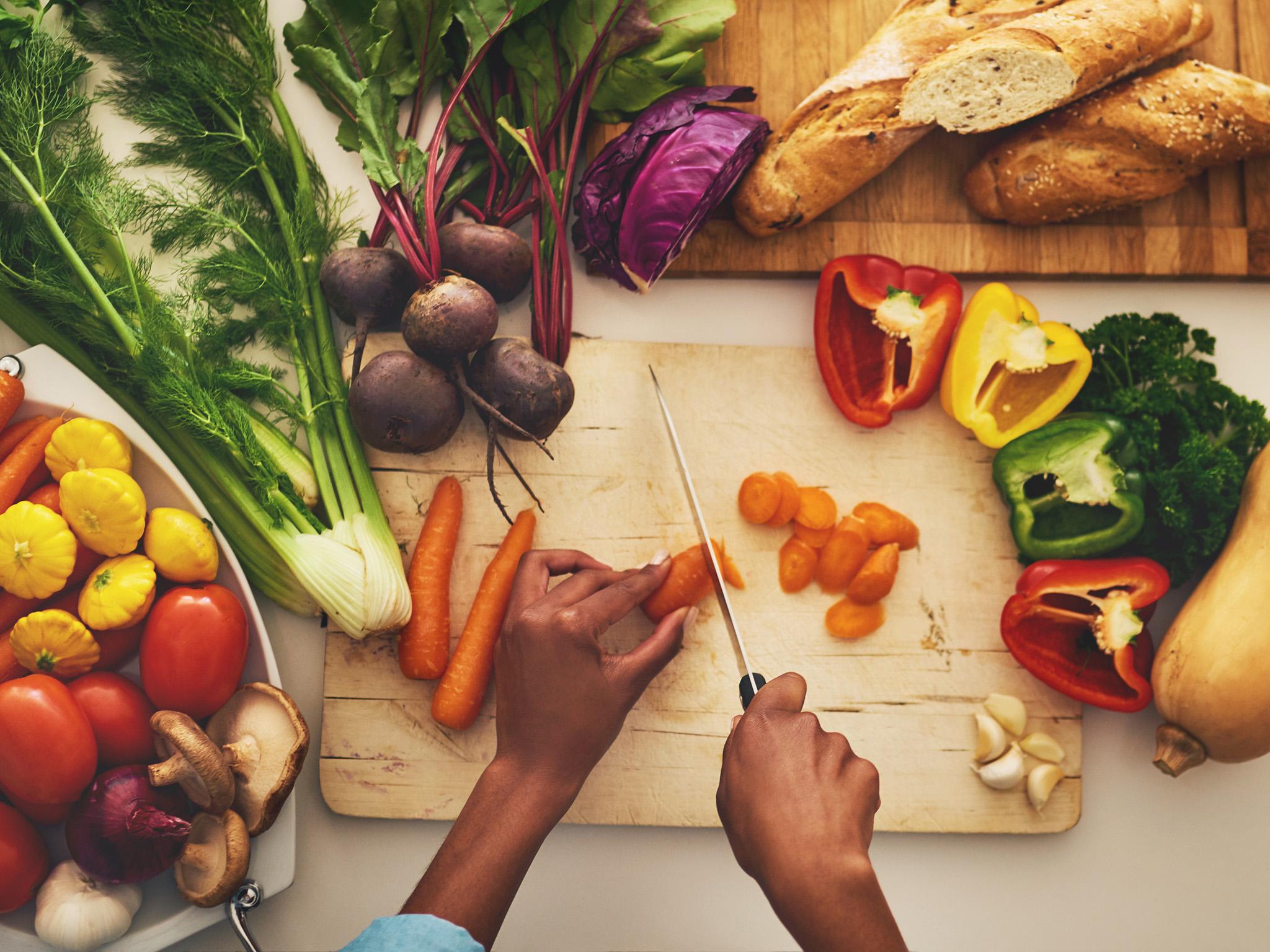The top 12 food myths British people believe
A third of those polled agree celery takes more calories to eat than it gives you

Carrots help you to see in the dark, oranges are the best source of vitamin C and avoiding fruit in the evening are among the pieces of food advice we should ignore, a study claims.
A poll of 2,000 adults suggests that many British people still believe a number of nutrition myths.
Commissioned by the Love Fresh Berries campaign, a third of those polled agreed celery takes more calories to eat than it gives you.
And nearly half said they did not bother sourcing nutritional information about their food.
Another quarter said they tended to decide whether something is good or bad to eat after searching through social media.
And more than a fifth said they believe juicing fruit is as nutritious as eating it whole.
But Dr Emma Derbyshire, a registered public health nutritionist who is working with Love Fresh Berries, said vital fibres and nutrients are removed in the juicing process.
Nicholas Marston, chairman of Love Fresh Berries, added: “There are so many food myths and misinformation around that it’s sometimes hard to know what is actually good for you and what we should be eating.
“Often the difference between truth and a myth can be somewhat unclear so it’s important to distinguish between them and get information from reputable sources, not hearsay.”
The study also found 32 per cent mistakenly believe organic fruit is much healthier than a non-organic counterpart, when in fact there is a negligible nutritional difference between the two types of fruit.
Top 12 food myths British people believe
1. Oranges are the best natural source of vitamin C
Strawberries actually contain more Vitamin C than oranges (57mg/100g compared to 42mg/100g for easy peeler oranges). Just seven strawberries provide the recommended daily amount of Vitamin C which contributes to the normal function of the immune system along with the reduction of tiredness and fatigue.
2. Cooking fruit and vegetables reduces its nutritional value
Cooking does destroy some heat sensitive vitamins such as folate and Vitamin C. The longer that fruit or vegetables are exposed to heat, the more nutritional value they lose. However in some instances, health benefits are unlocked through cooking.
3.Too much of any fruit rots your teeth
Fruits which have a high acid content can damage the enamel of your teeth if eaten excessively. However, the sugar in most fruits will not rot your teeth.
4. Carrots help you to see in the dark
This is a myth but carrots do contain Vitamin A which is important for good vision.
5.Eating celery burns more calories than you gain by eating it
In reality there are no negative-calorie foods. Even though celery has low calories, high water density and high fibre, your body still doesn’t use as many calories to process it as there are in a celery stick.
6. Organic fruit is healthiest
There is a negligible nutritional difference between organic and non-organic fruit.
7. Chocolate is an aphrodisiac
There is limited evidence that chocolate is an aphrodisiac as there are such small amounts of the substances which have an effect on desire in chocolate.
8.Drinking fruit juice is as nutritious as eating whole fruit
Whole fruit contains vital fibres and nutrients that are removed when juicing.
9.Dried fruit and fresh fruit have equal nutrition
The heat used in drying fruit can decrease the amount of some heat-sensitive nutrients like Vitamin C. However, one piece of dried fruit does contain similar nutrients as fresh fruit, just in a smaller portion.
10.It takes seven years to digest chewing gum
While your stomach doesn’t digest gum the same way as other foods, it still makes its way through your system the same way.
11. Fruit should not be eaten after 2pm
Fruit is healthy at any time of day.
12.Fruit should only be eaten on an empty stomach
There is no scientific evidence to suggest negative side effects of eating fruit before other food.
SWNS
Join our commenting forum
Join thought-provoking conversations, follow other Independent readers and see their replies
Comments
Bookmark popover
Removed from bookmarks